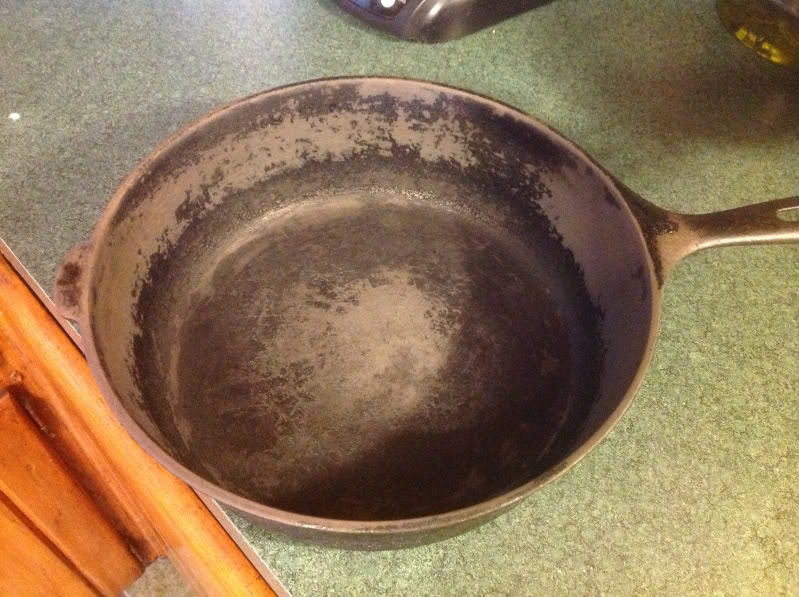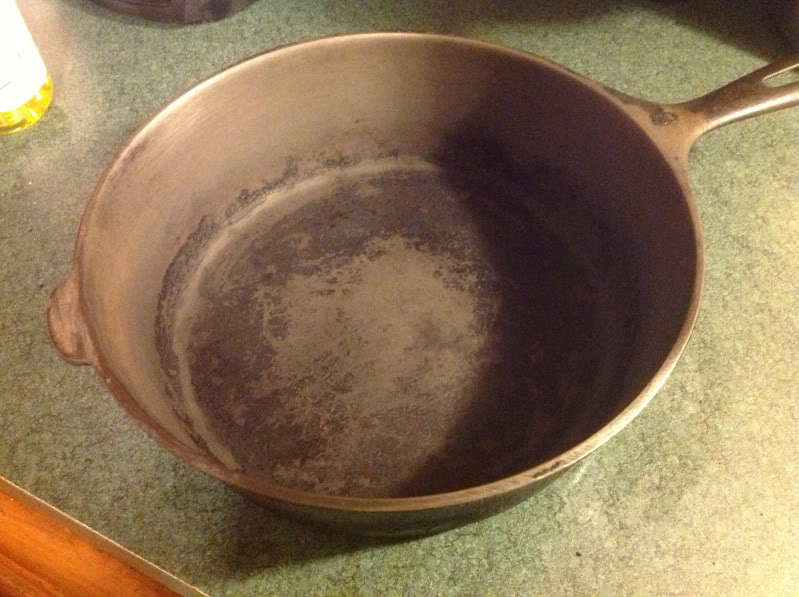VitaWright
Cook
I need your suggestions for stripping cast iron. I just got a new to me chicken fryer off of eBay. It is going to be perfect once I get it stripped and reseasoned. It has so much build up on the sides of the inside that its thick and cracked so I really would like to start from scratch. I only buy old cast iron so this pan will be nice.
Anyway, I have it sitting in a plastic bag with oven cleaner in it. We just got back from camping and I didn't have this then so no way to stick it in a fire. I suppose we could build one in the back yard but it's in the 80’s here. Any other suggestions to getting that thick build up off? It's been in sitting for 24 hours and it's still really thick. No self-cleaning program on my oven although I can ask around my friends if anyone else has it.
Any suggestions will be greatly appreciated. I probably need to just exercise a little patience.
Anyway, I have it sitting in a plastic bag with oven cleaner in it. We just got back from camping and I didn't have this then so no way to stick it in a fire. I suppose we could build one in the back yard but it's in the 80’s here. Any other suggestions to getting that thick build up off? It's been in sitting for 24 hours and it's still really thick. No self-cleaning program on my oven although I can ask around my friends if anyone else has it.
Any suggestions will be greatly appreciated. I probably need to just exercise a little patience.


